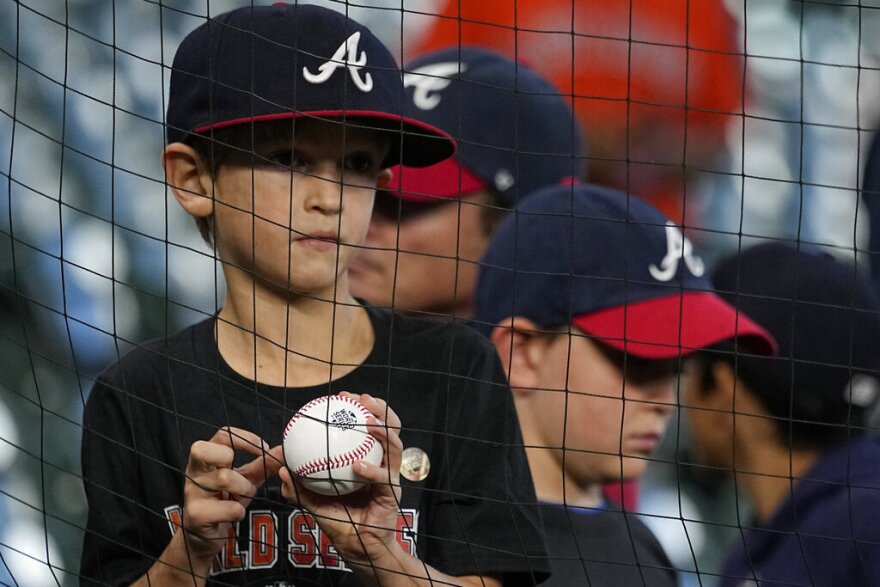Outside Minute Maid Park before Game 2 of the World Series Wednesday night, excited home-team fans were itching to root on their Houston Astros.
But scattered among those Houston diehards were a few cautiously optimistic fans sporting Braves jerseys.
Some flew into town from Atlanta, but others didn’t have to travel very far at all: They drove just a few hours from places like Austin and San Antonio, or even just a few minutes from right here in Houston.
In fact, there are more Braves fans in Texas and across the country than you'd think thanks to a history of so-called “superstations” across the country. Specifically, WTBS — now TBS — which broadcast Braves games nationally from the 1970s up until 2007.
David Barron is a retired journalist of more than four decades, and reported on sports media for the Houston Chronicle.
He says that while today you can watch games from any team in the U.S. through national and regional sports networks, and online streaming, a few decades ago, you were lucky if you caught a game once a week.
That changed once the superstations rose to prominence in the 1980s. If you had cable, you'd be able to watch every Atlanta game no matter where you lived. That means you could become a diehard fan of a team hundreds of miles from your hometown.
Read our interview with David Barron below, edited for length and clarity.
What was the impact of those “superstations” on baseball fandom?
For a generation that had grown up watching television basically on the CBS Game of the Week with “Dizzy” Dean and “Pee Wee” Reese on Saturday afternoon, and then the weekly ABC games that were telecast in the later 1970s, it was a chance to see baseball every day. They became sort of your local team, in addition to the team in your market. And for people who did not have a baseball team in their city, I'm sure they became sort of a home team for them as well.
So did this just play a role in smaller towns and cities, places that didn’t have a local market team?
Basically I think it was that way for everyone until the early 1980s, and regional sports networks like Home Sports Entertainment, which started in 1983 and was doing Astros and Rangers telecasts. Until then, you didn’t get that many regular season games on television. You would get a few games on over-the-air TV. The advent of regional cable networks like HSE made games more popular, so you had that local contact with team that you didn't have during the early 1980s.
But even after some RSNs started doing business, or starting telecasting more Major League Baseball games, you could still get Braves games. They became sort of a primary home team for you, or even a secondary home team for you, if you lived in an area that did not have a Major League Baseball team within the confines of your own city.
The idea of having sort of a national imprint on radio had been set during that timeframe, but then it sort of grew in the 1980s when you had the Braves on WTBS, or later TBS, and you had the White Sox on WGN and the Mets on WOR.
I’ve seen a good number of Braves fans at these Houston home games. Is that surprising to you?
It is a bit surprising to me that the Braves still have such a strong following in areas like Houston, because it's been several years since Braves telecasts have been that readily available on TBS. (The station ended national Braves broadcasts in 2007.)
But baseball fans are traditionalists. It's one of those things I think where if you grow up listening to a team, you identify with that team for years after, even if you don't get to see them or hear them as regularly as you used to.

